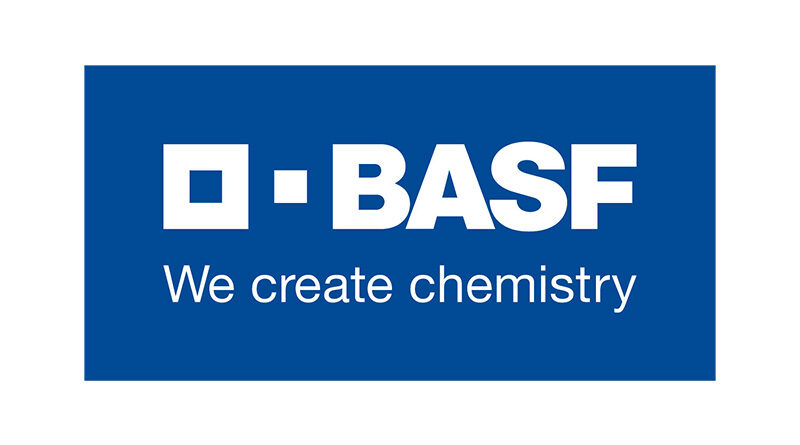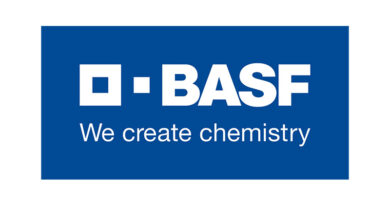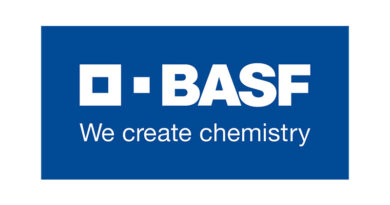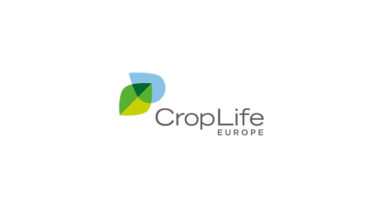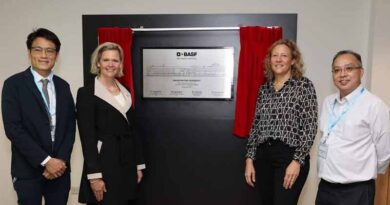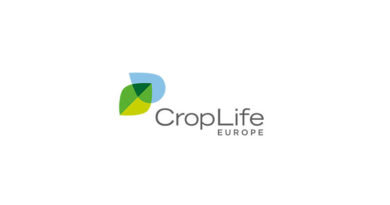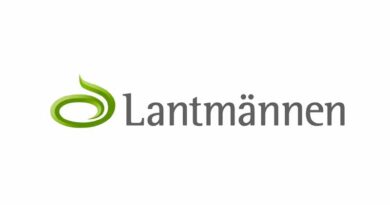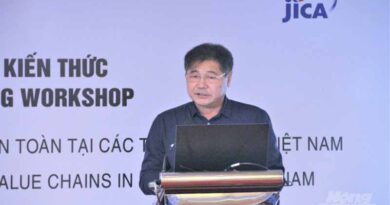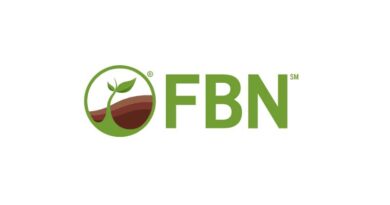BASF advances innovation pipeline with integrated solutions to accelerate agriculture’s transformation
16 March 2023, Europe: BASF presents the latest advancements in its agricultural innovation pipeline of crop protection, seeds and traits, and digital solutions. Their focus is to provide much-needed solutions for farmers to overcome local and crop system specific pest pressures, climate challenges, changing regulatory requirements and rising consumer expectations. Executing on its strategy in agriculture announced in 2019, the company is directing its innovations to improve outcomes for major regional crops, such as soy in the Americas, fruits and vegetables in Europe and rice in Asia Pacific. The value of the innovation pipeline remains strong, with an estimated peak sales potential of more than €7.5 billion fueled by products launched within the next ten years.
“Our goal is to become an ever more integrated provider of agricultural solutions and to expand the options we can offer to farmers. This is why we continue to invest substantially across our broad pipeline of agricultural technologies, with €944 million spent on Research & Development in 2022,” said Dr. Livio Tedeschi, President of BASF Agricultural Solutions. “Farmers can continue to rely on us to innovate and deliver new active ingredients, innovative formulations, and traits to get more value from their production, both economically and environmentally.”
“Our pipeline demonstrates that we are not only leveraging our deep expertise in chemistry and environmental sciences, but also matching it with leading biotechnology and digitalization approaches for next generation solutions,” added Dr. Peter Eckes, President R&D and Regulatory of BASF Agricultural Solutions. “BASF’s industry-leading weed-control pipeline is a premier example of how our multidisciplinary approach yields solutions that balance the needs of farmers, society and the environment.”
Significant advancements of weed management solutions for farmers in the Americas and Europe
In North and Latin America, BASF is advancing several weed management solutions, matching new herbicide modes of action active ingredients with innovative traits and precision farming technologies in major crops such as soybean. These solutions facilitate climate-smart and environmentally responsible farming practices, such as minimum tillage and efficient use of crop protection chemistries:
- A new L-glufosinate ammonium (L-GA) Active herbicide formulation will significantly reduce the amount of active ingredient required, saving operating costs as well as contributing to more sustainable distribution and application than today’s solutions. Farmers can expect this new L-GA formulation from mid-decade and onwards, starting in the United States.
- Tirexor® Active is a new PPO inhibiting herbicide (protoporphyrinogen IX oxidase), controlling weeds currently resistant to other PPO inhibitors. The fast-acting herbicide with low use-rates received strong customer adoption after its approval in Australia in 2020 and in Canada in 2022. Expected market introduction for soybean farmers in Argentina is 2024 and in the United States is 2025. Introduction in other Latin America countries and Asia Pacific will follow with expansion into different crops.
- BASF is bringing a much-needed solution for over-the-top control of weeds in soybean, developing an additional PPO herbicide with a corresponding herbicide tolerance gene. That gene will be incorporated into a new herbicide tolerance trait developed by Corteva. It is a key element of a multi-generational soybean trait pipeline collaboration that is expected to be available in seed varieties in the early 2030s. Farmers will benefit from more flexibility to use PPO herbicides beyond pre-emergence to control weeds with over-the-top application.
- To further support resistance management, an entirely new herbicide mode of action is currently in the late research phase at BASF. The corresponding herbicide tolerance trait for soybean is being developed by BASF as part of the collaboration with Corteva. Farmers will have the option to access this innovative trait technology through leading soybean seeds from BASF and Corteva. This longer-term approach from both companies will provide competitive alternatives for soybean farmers well into the 2040s.
In addition, BASF is releasing unmatched weed management solutions for farmers in Europe:
- The SMART SPRAYING SOLUTION by Bosch BASF Smart Farming is commercially available in Europe for corn, sunflower, sugar beet, and soybean. The technology, which supports a more efficient use of herbicides, is accessible to farmers through a partnership with German-based agricultural machinery manufacturer Dammann initially in Germany and Hungary. Bosch BASF Smart Farming is advancing additional partnerships and field trials in the Americas and Europe, with the aim of continued commercial launches within the 2023/24 season.
- A significant step forward in weed management was introduced to wheat farmers in Great Britain in 2022 with the approval of Luximo® Active. With its novel mode of action, Luximo is a vital tool for controlling blackgrass and Italian ryegrass, some of the most challenging and yield-robbing weeds. Further Luximo registrations are expected mid-decade in Europe. Luximo provides farmers in the region with a new tool for resistant weeds, which is crucial to efficient use of crop protection products on farmland.
Innovations for farmers growing fruits and vegetables in Europe
In Europe, BASF aims to improve fruit and vegetable quality and flavor, and to reduce food loss and waste through seed breeding and innovations in chemistry and digital:
- BASF is set to launch its latest insecticide active ingredient Axalion™ Active. It is a new class of chemistry with a new mode of action, designed to safeguard harvest from a broad spectrum of damaging piercing and sucking pests. While working harmoniously with beneficials and pollinators, Axalion controls pests that have developed resistance to existing chemistries. Launches will start in 2023 in Asia Pacific, with additional registrations following in Europe and Latin America.
- After showing market-leading control of diseases in cereal, soybean and corn, BASF expects to launch Revysol® Active in fruits and vegetables as well as rice starting in 2023. The Revyona® formulation maintains the outstanding performance and favorable regulatory profile of Revysol, ensuring reliable yield and quality. The formulation provides a high level of control of powdery mildew, scab, and many other diseases in tree fruits, grapes, and potatoes.
- Through excellence in breeding, BASF’s vegetable seeds business developed Sunions®, the first tearless onion variety available in supermarkets. Since 2022, it is also available throughout France, Germany, Italy, and the United Kingdom.
- Farmers in multiple European countries now have access to BASF’s vegetable seeds varieties with resistance to aggressive and difficult to control viruses. These include Tomato Brown Rugose Fruit Virus (ToBRFV) and Tomato Spotted Wilt Virus (TSWV) whose infections lead to food loss and waste caused by crop loss and quality impacts.
- Different novel resistance to ToBRFV are available in commercial varieties at large scale in Spain, the Netherlands as well as in Turkey, Morocco, Canada and Mexico besides various other countries
- Launched in Europe throughout 2021 and 2022, the Tayson variety of processing tomato has dual resistance against TSWV, which complements the variety’s already most complete trait package on the market.
- In 2022, BASF’s offer of digital agronomic advice for fruits and vegetables was improved with the integration of the decision support systems from the acquisition of Horta, an Italian digital farming company. A new offer is the Agrigenius Vite application, which enables wine growers to make smarter decisions about fungicide applications, maximizing yield and quality while reducing the environmental impact.
Broad portfolio of solutions to improve outcomes in rice in Asia Pacific
Farmers growing rice – the major crop for the main continent of Asia – face growing pressure from resistant weeds, diseases, and pest insects. BASF actively supports farmers to overcome these challenges through a broad portfolio of technologies. Multiple new chemistries and formulations are expected before mid-decade aimed at improving outcomes in rice:
- A new insecticide mode of action for rice hopper control is under development by BASF in collaboration with industry partners. With no cross resistance to market standards, it provides long residual control and a favorable regulatory profile. BASF has accelerated the development of the insecticide to reach farmers in Asia Pacific by mid-decade.
- BASF’s new Luximo® herbicide belongs to a chemistry class that was the first new mode of action classification update introduced in the last four decades. Controlling a broad range of problematic weeds in rice that have developed resistance to other modes of action, it will be an important tool in rice weed management and crop protection programs. Luximo will be launched in Indonesia in 2024, with other countries in the Asian market to follow by mid-decade.
- Kixor® CS is a new herbicide formulation of Kixor® Active that can be applied beyond pre-emergence to early-post, providing growers the flexibility to apply further into the season. The innovative encapsulation of the herbicide provides a physical barrier that increases crop safety while enabling long-lasting residual control of broadleaf weeds. Farmers in Asia Pacific can expect to use the new technology in rice mid-decade.
- Revysol®-based products will be launched within the next two years to control major diseases in rice such as sheath blight, and dirty panicles. These new formulations will be available to rice farmers in the region under the product names Cevya®, Mibelya®, and Revyrize®.
- Seltima® Plus is a disease management solution for rice with built in resistance management that will be introduced in the region in the next years. The combination of two fungicides provides yield and seed quality increases over market standards. In 2022, registration was granted in Indonesia with India, China and other countries to follow.
- The Provisia® rice system and Clearfield® production system for direct seeded rice enable growers to continuously make better use of the limited arable land and are an alternative to wet paddy cultivation. These yield-preserving technologies will debut in India, Malaysia, Thailand, and the Philippines in the second half of the decade. Additionally, Provisia will enter the Chinese rice market by 2025. As an introductory step, BASF announced a long-term partnership with Seedworks Philippines to introduce BASF’s non-GM trait for Provisia herbicide-tolerance into the Philippines’ hybrid rice market. This collaboration is one of ten different seed partnerships across five countries in Asia that will launch Clearfield and Provisia herbicide tolerant traits in rice.
- The decision-making quality of xarvio® FIELD MANAGER is continuously improving to optimize sustainable rice production in Japan. To support more efficient use of pesticides, BASF is updating the platform with new insect pest models expected to be available by 2025. Disease models will also be enhanced to support more precise fungicide timing, dosing, and product selection recommendations. Owing to the accurate, and continuously improving model-based insights, xarvio has evolved into the de facto standard tool for crop protection.
Also Read: Tendovo soybean herbicide from Syngenta earns rave reviews during first season of use
(For Latest Agriculture News & Updates, follow Krishak Jagat on Google News)

